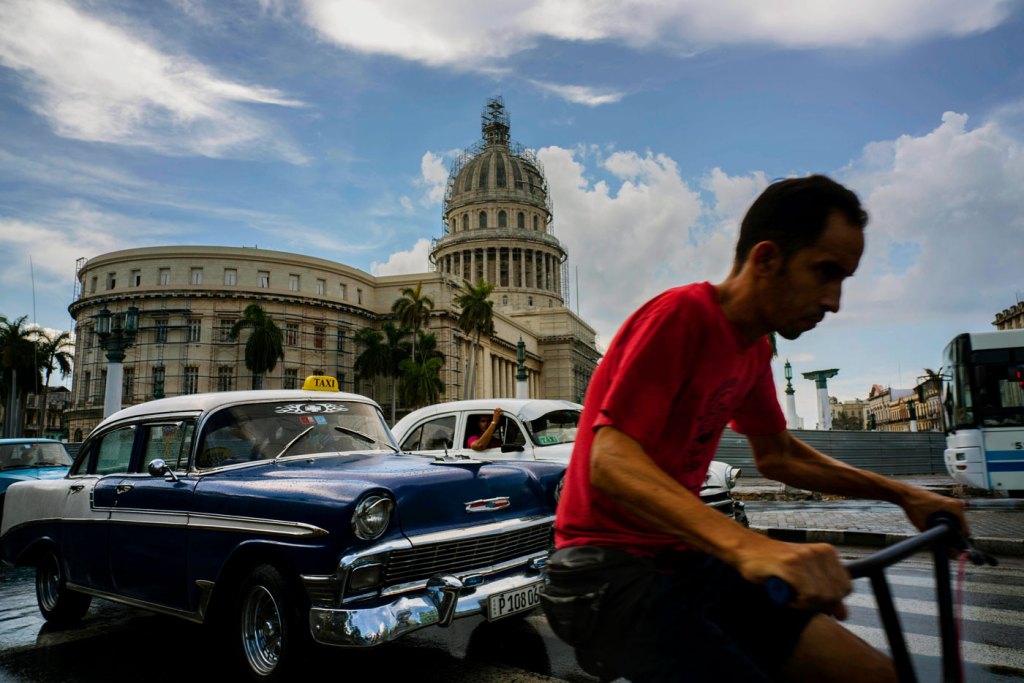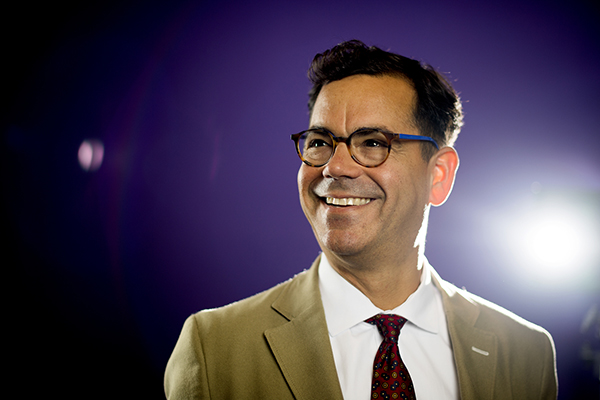Cuba is getting a new president. But that doesn’t mean the end of Castro rule.

Raul Castro’s decision step aside as Cuba’s president was met with great fanfare, but the move does not mean the end of 59-years of Castro rule over the island. Caribbean scholar Jose Buscaglia, a pioneer in Cuban studies since 1997, says Castro’s maneuver is designed to “hand the hot potato” of financial reform to his successor, Miguel Díaz-Canel, while maintaining the real power for himself.
How the United States responds to this shrewd political gambit will have far-reaching consequences on the global and national levels, according to Buscaglia. Because the Cuban economy is in such perilous shape, he said, continued U.S. economic pressure could drive the island nation to seek assistance from China, and potentially undermine U.S. national security.

Jose Buscaglia, professor and chair of the Department of Cultures, Societies, and Global Studies. Photo by Matthew Modoono/Northeastern University
On a more local level, strained relations could impede the momentum Northeastern has built in establishing education and research initiatives on the historically insular island.
Buscaglia, who is chairman of Northeastern’s department of Cultures, Societies and Global Studies, called upon his longstanding connections with Cuban leaders and citizens to provide insight into meaning of last week’s dramatic events.
I’m not looking for a massive shift in any institutional, structural, or philosophical sense. I don’t see a real transition happening for two major reasons.
For the first time in 59 years, a Castro will not be head of state in Cuba. How significant is this?
First, although Miguel Díaz-Canelhas been named president, Raul Castro is keeping his two most important positions—head of the Communist Party and commander in chief of the armed forces. If you listened carefully to Díaz-Canel’s acceptance speech on Thursday, he said Castro is continues to be “the supreme controller of the revolutionary process.” Castro will remain the most powerful person in Cuba.
Second, Cuba has been ruled by the military since the middle of the 19thcentury, so a true transition in Cuba would not be a transition from communism to capitalism, but a sea change from military to civilian rule.
If Raul Castro isn’t really leaving power, why would he make such a show of handing over the presidency?
Because he has a big problem on his hands. In 1994, Fidel Castro created a second currency as a way to extract more labor for less money out of workers. The new currency was pegged to the American dollar. But workers continued to be paid in the Cuban peso, which has a 25-to-1 ratio to the new currency. This has created enormous social tension. In addition, Raul Castro knows he can’t get international investment or credit until he combines the two currencies.
So, by transferring the presidency, Raul is passing the hot potato to Díaz-Canel, who is being set up to fail. When this process is over, the new president will be the most unpopular person in Cuba.
So what has changed in Cuba?
The only real change going on in Cuba right now, based on the people I know, is the standard of living has continued its downward spiral. This is caused by massive inflation and the decreasing oil extraction in Venezuela.
Why is Venezuelan drilling significant?
Cubans run everything in Venezuela, which has the largest reserves of oil in the world. But the extraction infrastructure has almost collapsed and that has significant consequences in Cuba, which is suffering from an energy shortage and depends on oil imports from Venezuela. That makes the economy weak and the trade deficit lopsided.
Why should the United States care about any of this?
It’s not in the U.S. interest to have a destabilized Cuba. Clearly a poor economy is a destabilizing force. Right now, both China and Russia are giving Cuba economic concessions—especially China, which is providing assistance in the form of loans and technology.
Meanwhile, the Trump administration wants to keep the pressure on Cuba, requiring that all purchases, including food, be made in cash, not credit. This is a way to keep Cuba under economic embargo, but its also forcing Cuba to go elsewhere for economic partnerships.”
As Cuba goes deeper into debt, China is going to want something in return. So it’s quite likely that the Chinese will have a military base in the Caribbean, 90 miles away from Key West. That’s what’s at stake here.




